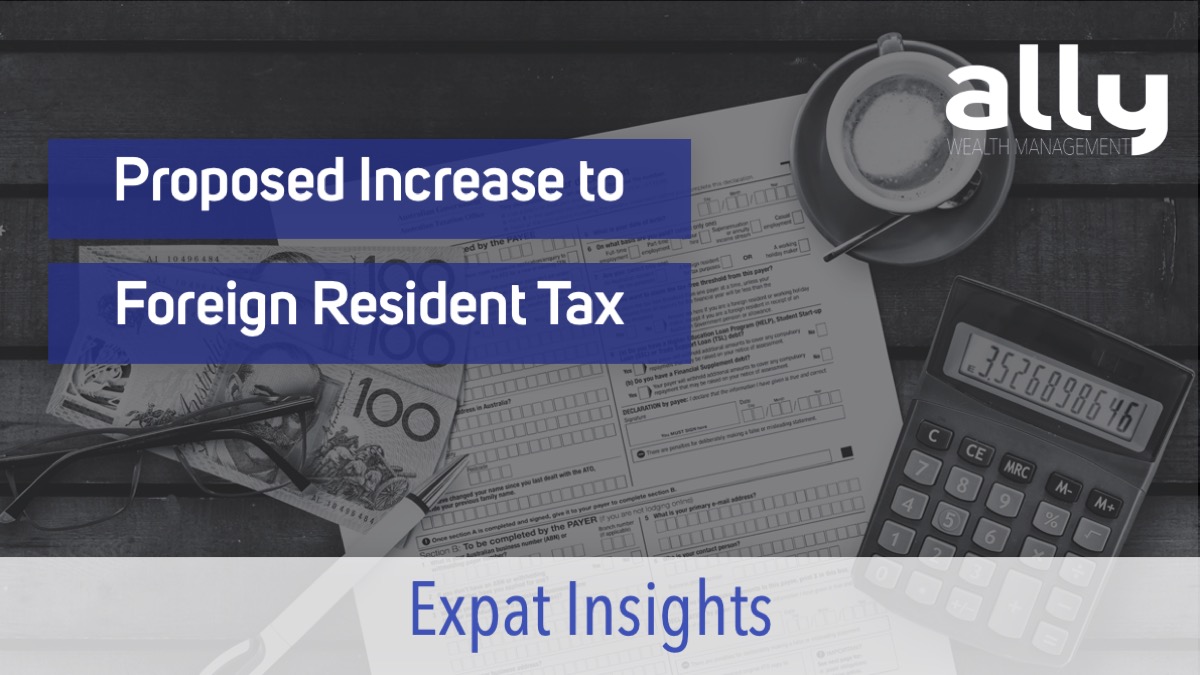Proposed Increase to Foreign Resident Capital Gains Withholding Tax
Australia’s tax landscape is witnessing a significant change with the proposed increase to the Foreign Resident Capital Gains Withholding Tax (FRCGW). Effective from 1 January 2025, the FRCGW rate is proposed to rise to 15% from the current 12.5%, and the withholding threshold will be reduced to zero, down from $750,000, for real property disposals.
This blog aims to provide you, whether you’re a foreign investor or a local stakeholder, with a comprehensive understanding of these changes and their potential implications.
Background of Capital Gains Withholding Tax
The Foreign Resident Capital Gains Withholding Tax, introduced in 2016, was designed as a measure to ensure that foreign residents meet their Australian tax obligations on the sale of certain property assets. The tax applies to the sale of real property and certain indirect property interests, where the purchaser is required to withhold a portion of the purchase price and remit it to the Australian Taxation Office (ATO).
Simply put, this measure was designed to ensure that capital gains tax bills would be paid, and that funds would not be released, unless a request was submitted and approval granted to waive the withholding tax, until the tax bill was effectively paid in full.
Overview of the Proposed Changes
In a move to further tighten tax compliance, the Australian government has announced a significant amendment to the FRCGW regime. From 1 January 2025, the withholding rate is proposed to increase to 15%, and more notably, the threshold for when this tax applies will be reduced from $750,000 to zero. This means that all property transactions, regardless of value, involving foreign residents will now be subject to this withholding tax.
For you as a foreign investor, these changes could have a considerable impact. The increase in the withholding rate means a larger portion of the sale proceeds will be withheld upfront. This could affect your cash flow and investment strategy. Moreover, the removal of the threshold means that even lower-valued property transactions, previously exempt, will now fall within the ambit of this tax.
If you are looking to sell a property and purchase another, or would need to discharge a mortgage upon the sale of the property, it’s important to seek professional advice before executing the sale to ensure you’re applying for all relevant waivers where required.
Potential Economic and Market Implications
These changes could have ripple effects on the Australian property market. A higher withholding tax might discourage foreign investment in Australian real estate, potentially leading to a cooling of the market, especially in high-value property segments. However, it could also bring about a more level playing field for domestic investors. It’s crucial to monitor how these changes will impact market dynamics, property prices, and investment trends.
With the tax landscape evolving, it’s imperative for foreign investors to stay informed and compliant. Understanding the nuances of these changes and seeking professional advice to navigate them becomes crucial. The legal obligations now extend to a broader range of transactions, making it important for you to reassess your investment structures and strategies in Australia.
Case Studies or Examples
To better understand the impact of these changes, let’s consider a few hypothetical scenarios:
Case Study 1: Small Property Investor
A foreign investor purchases a residential property in Australia for AUD 500,000. Under the new regime, the entire purchase price is subject to the 15% withholding tax, amounting to AUD 75,000, which significantly affects their investment return calculations. It’s important to note that this withholding is not a tax bill, but could significantly impact cash flow in the short-term for the vendor of this property.
Case Study 2: Large Commercial Transaction
In a transaction involving a commercial property worth AUD 5 million, the increased withholding tax would now be AUD 750,000. This substantial cost could lead to re-evaluation of investment strategies or negotiation tactics in the transaction process.
These examples highlight the increased financial burden and the need for meticulous planning under the new tax regime.
Expert Opinions and Analysis
Diverse viewpoints from economists, tax experts, and property market analysts suggest mixed reactions to the tax increase. Some experts argue that this move could stabilise the property market by reducing speculative investments. Others raise concerns about the potential dampening effect on foreign investment, which has been a significant driver of the Australian real estate market.
Economists also point out that while the immediate effect might be a reduction in foreign investment, in the long term, it could lead to more sustainable growth and a more balanced market.
Conclusion
The proposed increase to the FRCGW is a significant development in Australia’s taxation landscape, with far-reaching implications for foreign investors, the real estate market, and the economy. While it aims to ensure tax compliance and create a level playing field, the impact on investment strategies and market dynamics cannot be ignored.
As an investor or stakeholder, it’s crucial to stay informed and adapt to these changes. Whether it’s reassessing investment portfolios or seeking professional advice for compliance and strategic planning, proactive measures will be key to navigating this evolving landscape.
Ally Wealth Management is the trusted ally in finance for Australians at home and across the globe. As both Australian expats and residents, the founders of Ally have a unique understanding of the common personal financial challenges faced.
Book your complimentary appointment with our team at Ally Wealth Management to discuss how we can help you to achieve your financial goals.
Ally Wealth Management Pty Ltd is a Corporate Authorised Representative of Sentry Advice Pty Ltd ABN 77 103 642 888. Sentry Advice holds an Australian Financial Services Licence (AFSL) No. 227 748.
General Advice Warning: The information contained herein is of a general nature only and does not constitute personal advice. You should not act on any recommendation without considering your personal needs, circumstances, and objectives. We recommend you obtain professional financial advice specific to your circumstances.




